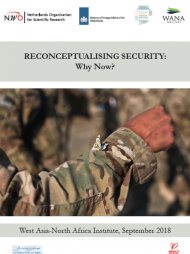-
Reconceptualising Security: Why Now?
Reconceptualising Security: Why Now?
This paper seeks to examine the regional peace and security nexus, with a specific focus on youth. It argues that without human-centric security paradigms with youth at their core, the persistence of state-centric security paradigms will continue to flare anger, yielding further regional instability and insecurity. In five sections, the paper highlights how a strict focus on state-centric security programming has come at the expense of sustained human security, which has eventually widened the peace deficit in the region and exposed young people to greater risks and vulnerabilities. The first section will address some definitional issues regarding both state-centric and human-centric security; the second will answer the question of ‘why youth?’ by briefly discussing the regional demographics and the evolving social contract; the third section will examine the limits of the existing state-centric security programming paradigm; the fourth will make a case for an alternative, human-centric security paradigm with youth at its centre; and the fifth section will present the conclusions.

